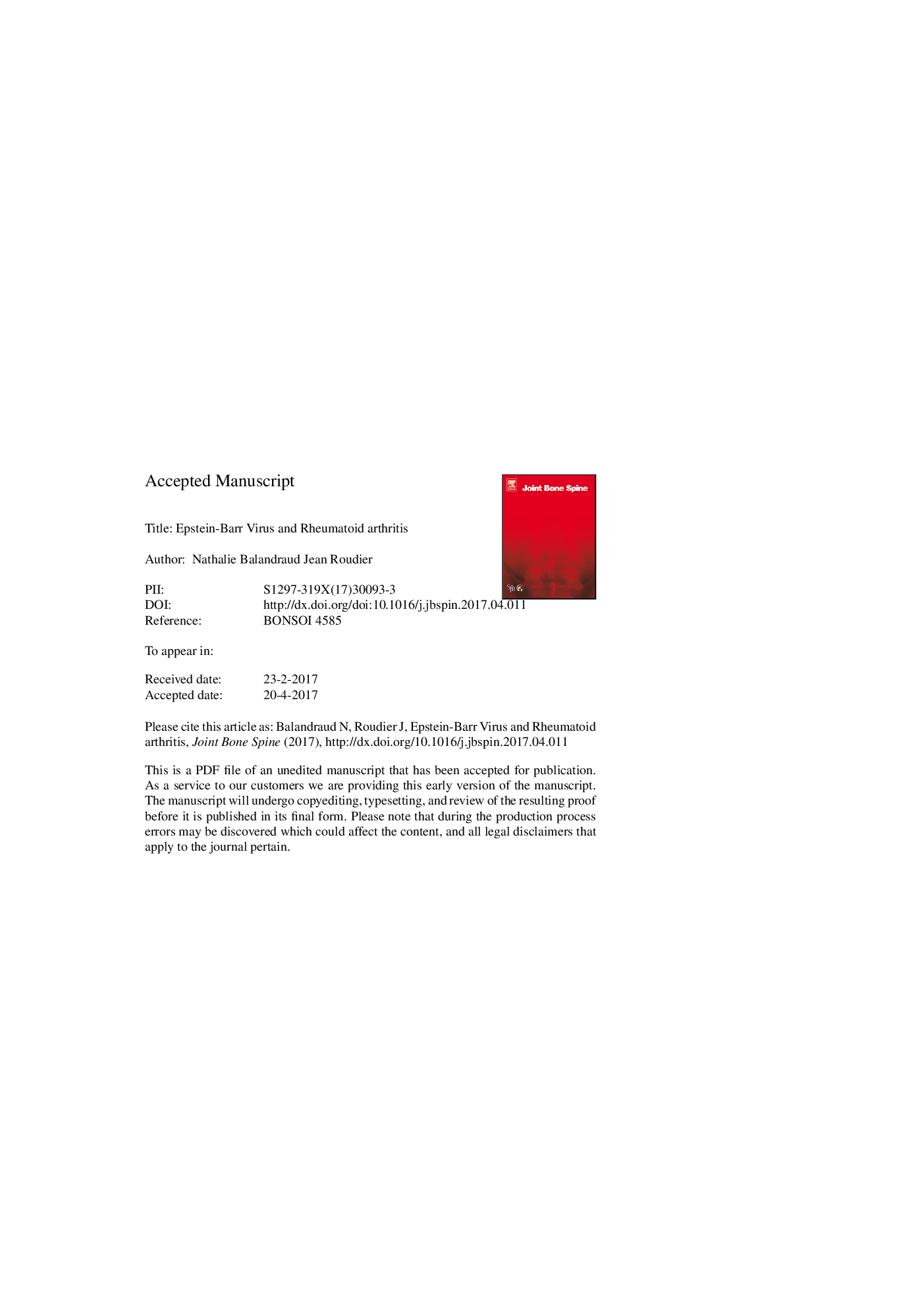| Article ID | Journal | Published Year | Pages | File Type |
|---|---|---|---|---|
| 8739313 | Joint Bone Spine | 2018 | 17 Pages |
Abstract
Rheumatoid arthritis (RA) is one of the most common autoimmune diseases, with a 0.5% worldwide prevalence. The cause of RA remains unknown, however both genetic and environmental factors may contribute to its development. Among these is the Epstein-Barr virus (EBV). Here, we discuss several aspects of the close relationship between EBV and RA. Patients with RA have impaired control of EBV infection. Indeed, they have high titres of antibodies against EBV antigens. Their peripheral blood T lymphocytes are less efficient at controlling the outgrowth of EBV-infected B cells. RA patients have more EBV-infected B cells than normal controls, leading to a 10-fold systemic EBV overload. Post-transplant lymphoproliferative disorder (PTLPD) is a polyclonal EBV-positive B lymphocyte proliferation, which can evolve into an EBV-positive B cell lymphoma. RA patients also have an increased risk of developing EBV-associated lymphoproliferative disorder (LPD). Hence the need to monitor EBV load when treating RA patients with immunosuppressors. EBV, a widespread virus, highly recognized by antibodies but never eliminated, is an ideal candidate to trigger chronic immune complex disease. Anti-EBV antibody responses should be considered as one of the chronic autoantibody responses linked to the development of RA, in the same way as anti-citrullinated protein antibodies.
Related Topics
Health Sciences
Medicine and Dentistry
Immunology, Allergology and Rheumatology
Authors
Nathalie Balandraud, Jean Roudier,
